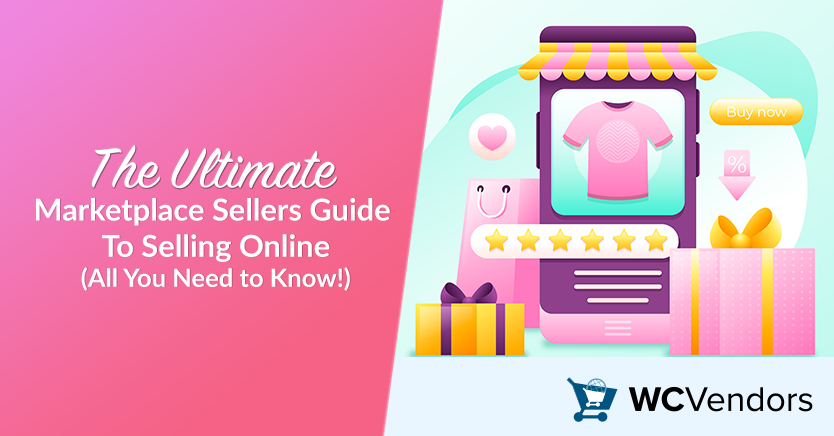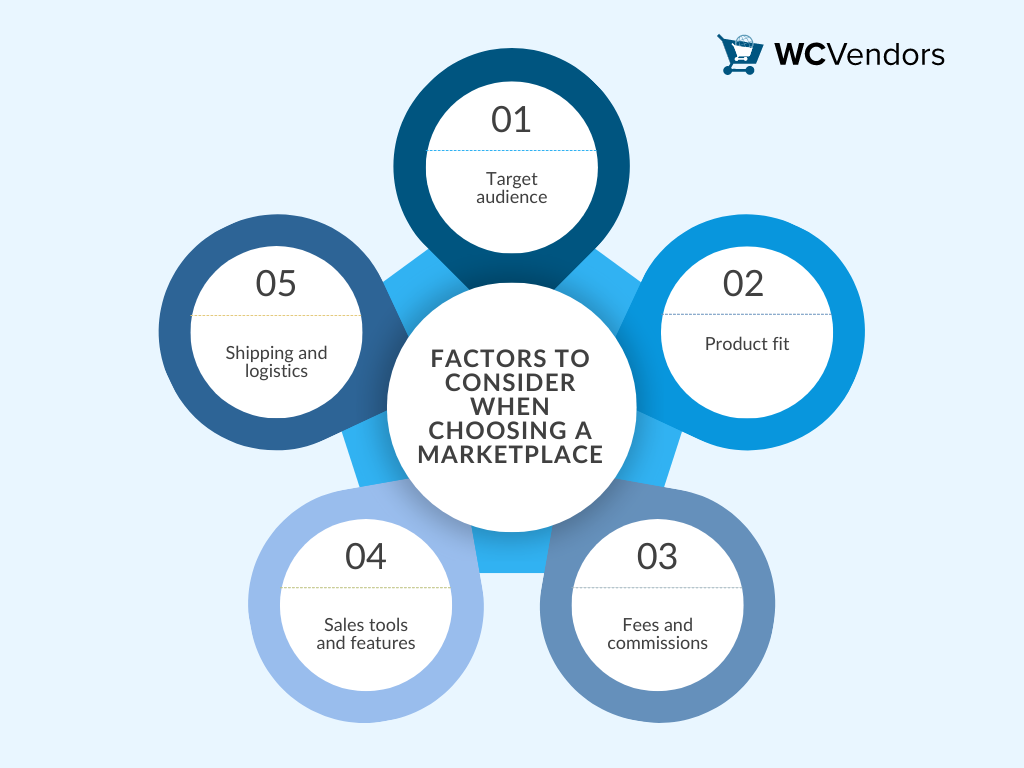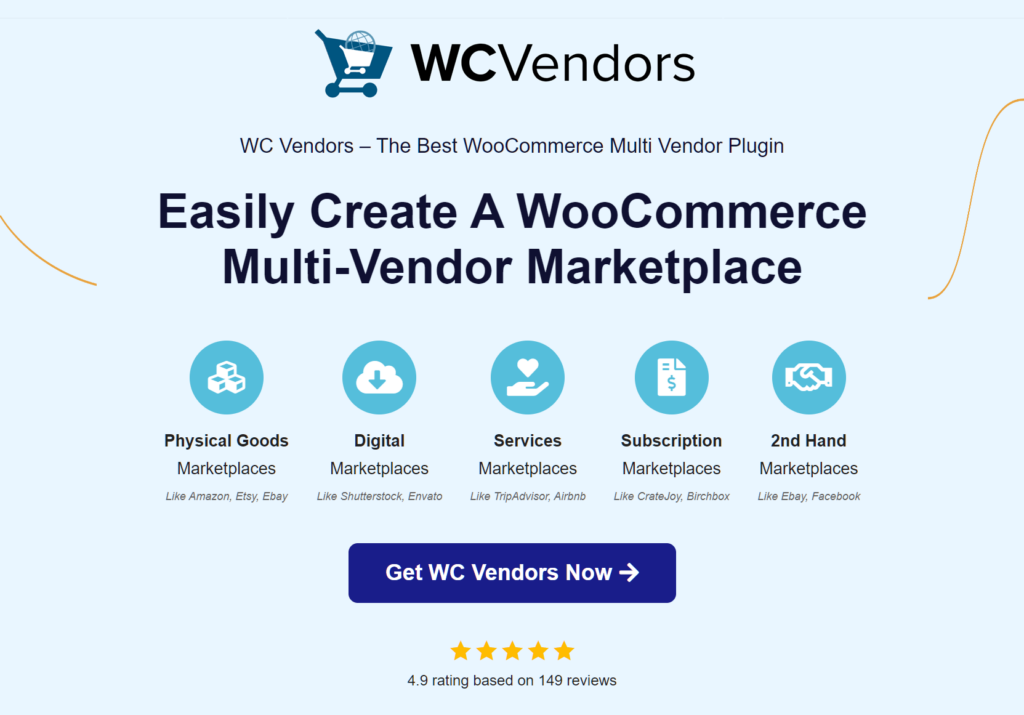
As online shopping continues to surge, the possibilities for marketplace sellers have never been greater. Imagine reaching customers from all over the globe, growing your business, and building your brand—all from a single platform. Sounds exciting, right?
But with so many sellers out there, how do you rise above the competition and succeed? This guide will walk you through what it takes to become a standout marketplace seller and provide strategies to help you thrive.
Ready to unlock your full selling potential? Let’s get started!
What Is A Marketplace Seller?
A marketplace seller is someone who sells products or services through an online marketplace platform like Amazon, eBay, or a multi-vendor marketplace built using tools like WC Vendors. As a marketplace seller, you don’t need to run your own store website. Instead, you benefit from the infrastructure and audience provided by the marketplace platform.
Marketplace sellers can be individuals selling handmade goods, small business owners offering products, or even large brands looking to expand their reach. The key to success as a marketplace seller is knowing how to use these platforms effectively.
So, how do you get started?
Choosing The Right Marketplace For Your Products

Finding the right marketplace for your products is the first step. Different platforms attract different types of customers, so it’s important to research and understand where your target audience shops. For example, if you’re selling unique or custom items, a platform that supports multi-vendor marketplaces, like WC Vendors, could be an ideal fit.
When choosing a marketplace, here are a few key factors to consider:
- Target audience: Ensure the marketplace attracts the demographic you’re aiming to sell to.
- Product fit: Some platforms are better suited for specific product types, such as handmade goods, tech, or clothing.
- Fees and commissions: Understand the fees and commission structure on each platform, as this will impact your profits.
- Sales tools and features: Look for platforms that offer built-in tools like marketing features, reports, and order management.
- Shipping and logistics: Make sure the marketplace supports your shipping needs, whether you handle it yourself or through a third party.
Once you’ve chosen a marketplace, the next step is to set up your seller account and complete any registration requirements. Many platforms have their own rules regarding sales tax and shipping, so be sure to familiarize yourself with these before getting started.
Registration Requirements For Marketplace Sellers
Before you start selling, you’ll likely need to go through registration requirements. Each marketplace has its own process, but generally, this includes providing identification, setting up your payment method, and agreeing to the platform’s terms and conditions.
For example, Amazon requires sellers to provide personal or business identification, proof of address, and a valid credit card before setting up their seller account. Similarly, Facebook Marketplace requires you to link a valid payment method and agree to their terms before you can list products.

Once registered on your chosen platform, you’ll be ready to start listing products and selling through the marketplace. Make sure to review any specific requirements to avoid delays in getting your store up and running.
Setting Up Your Store
After completing the registration process, the next step is to set up your online store.
Most marketplaces provide easy-to-use tools to create your storefront, upload product listings, and manage inventory. Be sure to create detailed and attractive product descriptions, as they are crucial for attracting buyers.
How WC Vendors helps you set up and succeed
When setting up your store on a platform like WC Vendors, you get access to powerful tools that make the process smooth and effective.
WC Vendors lets you create a fully customizable storefront and manage multiple product listings with ease. It also helps you track your inventory efficiently. You have the flexibility to control pricing, shipping, and promotional strategies. This gives you full control over your business.

With WC Vendors, you can:
- Easily upload product images, descriptions, and details
- Offer discounts and manage coupon codes
- Set up shipping rules and options tailored to your products
- Monitor your store’s performance with detailed reporting tools
Managing Sales Through A Marketplace
One of the biggest advantages of being a marketplace seller is the ability to manage sales through a marketplace. This means that instead of handling every aspect of the transaction, the platform will assist with order processing, payments, and shipping.
For example, platforms like Amazon handle payment processing and offer shipping options. This allows sellers to focus on other areas of their business.
Similarly, Facebook Marketplace provides a simple process for handling payments and shipping. This takes much of the workload off the seller.
With WC Vendors, you have tools to automate payments, manage orders, and track shipping. This gives you more time to concentrate on growing your store.
However, it’s still important to track your sales and ensure that everything runs smoothly. By keeping an eye on your order flow and addressing any potential issues, you’ll maintain a seamless customer experience.
How To Stand Out As A Marketplace Seller
With so many sellers competing for attention, standing out in a busy marketplace can be challenging. However, by focusing on the right strategies, you can set your store apart and build a loyal customer base.
Here are some key ways to elevate your store and stand out as a marketplace seller:
Understanding sales tax for marketplace sellers
Sales tax is one area where marketplace sellers need to pay close attention. Many platforms, acting as marketplace facilitators, will collect sales tax on behalf of sellers in certain states or countries. However, depending on where you are selling, you may still need to report and remit sales tax on your own.
Make sure you understand the tax obligations in your region to avoid penalties. It’s always a good idea to consult with a tax professional if you’re unsure about your tax responsibilities as a seller.
Marketing your store to increase sales

Marketing is key to driving more traffic to your store and increasing sales. Many marketplaces offer built-in marketing tools like paid ads, email campaigns, and social media sharing options. Take advantage of these features to reach more potential buyers.
Building trust with buyers
One of the most important aspects of being a successful marketplace seller is building trust with your customers. Buyers want to feel confident in their purchases, and you can help them do this by:
- Providing accurate product descriptions
- Offering clear and fair return policies
- Responding to reviews and resolving issues quickly
Satisfied customers are more likely to leave positive reviews, which can significantly impact your sales.
Shipping and fulfillment
Efficient shipping and fulfillment are critical for marketplace sellers.
Many marketplaces offer fulfillment services to handle logistics, but you may also want to explore third-party options. Make sure your products are packed well and shipped on time to ensure a great customer experience.
Customer support for marketplace sellers

Offering great customer support can set you apart from other sellers. When customers know they can rely on you for prompt and helpful responses, they are more likely to return. Set up clear communication channels and make it easy for customers to contact you with questions or concerns.
Handling returns and refunds
Returns and refunds are a natural part of selling online. Be sure to create a clear return policy and communicate it to your buyers. Handling returns quickly and professionally will improve your reputation and encourage customers to shop with you again.
Growing your marketplace seller business
As your business grows, you may want to expand to other marketplaces or introduce new product lines. Keep track of your performance and look for opportunities to improve. This will help you continue to thrive as a marketplace seller.
Conclusion
To become a successful marketplace seller, it’s essential to apply the strategies and insights we’ve discussed. By mastering the basics of online selling and effectively using marketplace tools, you can grow your business and stand out in the competitive landscape.
Here’s what you need to focus on:
- Understanding Marketplace Sellers
- Choosing the Right Marketplace
- Meeting Registration Requirements
- Setting Up Your Store for Success
- Managing Sales Efficiently
- Standing Out as a Marketplace Seller
By focusing on these key areas, you’ll be well on your way to building a thriving marketplace business. Keep refining your approach, and success will follow. If you need further guidance, feel free to reach out—we’re here to support you!
